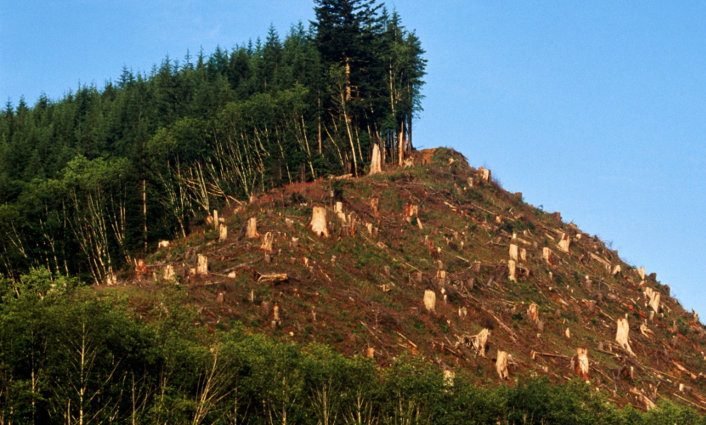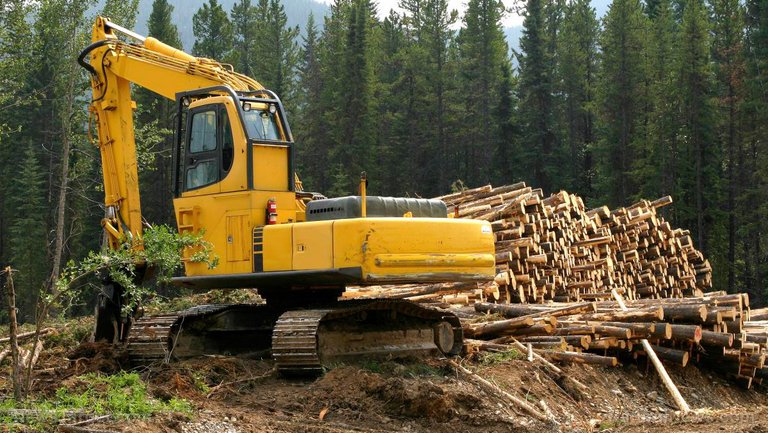Deforestation or logging is a process usually caused by human action, in which the forest area is destroyed. It is caused directly by the action of man in nature, mainly due to the felling or burning of the wood industry, as well as the obtaining of land for agriculture, mining and livestock.
Deforestation devastates the forests of the Earth in a massive way, causing immense damage to the quality of the soil. Forests still cover around 30% of the world's regions.
Cutting trees without efficient reforestation causes serious damage to the habitat, loss of biodiversity and aridity. It has an adverse impact on the fixation of carbon dioxide (CO2). Deforested regions tend to erode the soil and often degrade to non-productive lands.

Deforestation: Causes and Consequences
When a forest is removed and the land is destined, for example, to the agricultural or livestock farm, the capacity of the earth's surface to control its own climate and chemical composition is greatly diminished.
Trees create oxygen, an element that we know well, we need to breathe. That one circumstance would seem enough motivation to leave them intact. As lungs of the planet, forests work 24 hours to extract carbon dioxide from the air (a process called "carbon capture") and give us oxygen in return.

Today, many scientists concerned about climate change are investigating all kinds of intricate, costly and artificial tricks to capture carbon from the atmosphere in the hope of moderating climate change. 130,000 km² is the area of forests knocked down every year.
Undoubtedly, forests help maintain ecological balance and biodiversity, limit erosion in watersheds and influence climatic variations. They also supply rural communities with various products, such as wood, food, fuel, fodder, fibers or organic fertilizers.
Commercial logging operations, which provide pulp and wood products to the world market, also participate in the clearing of innumerable forests each year. Lumberjacks, even stealthily, also build roads to access ever more remote forests, which leads to an increase in deforestation. Forests and forests are also victims of constant urban growth.

Not all deforestation is a consequence of intentionality. Some are caused by human and natural factors, such as forest fires and intensive grazing, which can inhibit the growth of new tree shoots.
Deforestation has many negative effects on the environment. The most dramatic impact is the loss of habitat of millions of species. 70% of animals and plants live in the forests of the Earth and many can not survive the deforestation that destroys their environment. The trees also help perpetuate the hydrological cycle by returning water vapor to the atmosphere. Without trees that play this role, many forests can quickly become arid deserts

The fastest solution to deforestation is simply to interrupt logging. Although the rate of deforestation has slowed somewhat in recent years, the current financial realities make this solution an unlikely alternative.
The most viable solution would be to manage the plant's resources carefully by removing the agricultural clearings to ensure that the forest environments remain intact. Cutting should be done in a balanced way by planting enough young trees to replace the oldest trees in all the forests and jungles. The number of new tree plantations increases every year, but the total still amounts to a small part of the forest area of the planet.

https://historiaybiografias.com/deforestacion/
https://es.wikipedia.org/wiki/Deforestaci%C3%B3n
http://www.nationalgeographic.es/medio-ambiente/deforestacion